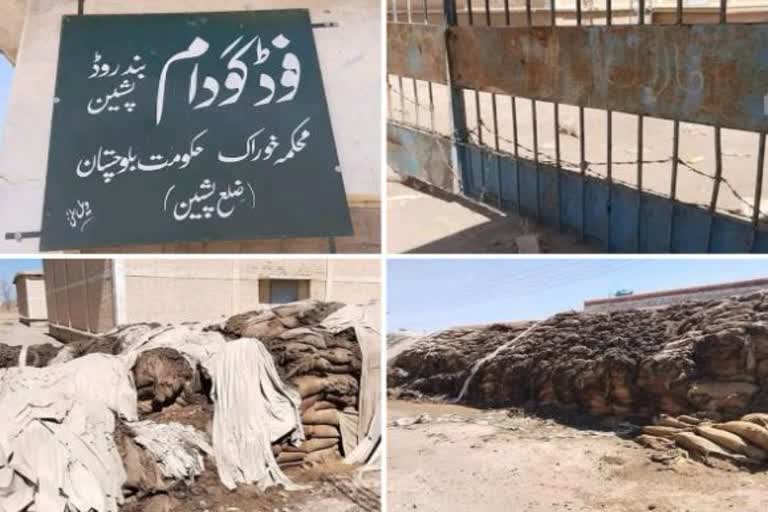Quetta: Amid the flour crisis for over the past three weeks in Pakistan, several pictures, which reportedly have emerged of a government food warehouse located on Band Road in Pishin district in Balochistan, depicting the possible wheat crisis in the country. Pakistan has been impacted by devastating floods after which tonnes of wheat and other food products have been destroyed, showing the negligence of the government. This occurred at a time when the country was already dealing with inflation.
Balochistan province has been facing flour crisis for over past three weeks, with mill owners blaming the provincial government for failing to procure the required wheat this year, according to local media reports. Pakistan Flour Mills Association (PFMA) Balochistan chapter representatives said there was a huge gap between the demand and supply which created the crisis, ARY News reported. "Flour mill owners were being blamed for the crisis, while in reality, the provincial government has imposed an inter-provincial and inter-district ban on the transportation of wheat during the harvesting season," they added.
Earlier on September 13, flour mill owners blamed the provincial government for the ongoing flour crisis in the province, alleging that the food department failed to procure wheat according to the requirement for this year, ARY News reported. Notably, Pakistan has increased the prices of wheat and flour by up to 10-20 per cent. In Balochistan, a 20-kg bag of flour was being sold from Rs 2,380 to Rs 2,500.
Besides, the skyrocketing prices, the commodity was not available in most shops across the province. Earlier, the Pakistan Bureau of Statistics (PBS) said in its report that the wheat flour price increased on average by 7.51 per cent nationwide to PKR106.38/kg in the week that ended on September 15 compared to PKR98.95 in the prior week which ended on September 8. In Karachi, the wheat flour price has increased by PKR 20-25 per kilogram in a matter of a few days to PKR120-125/kg.
Similarly, the wheat (grain) price surged 14 per cent in a week to PKR88/kg compared to PKR77.42/kg in the prior week. "Wheat has jumped 30 per cent in three months (as per PBS)," Ismail Iqbal Security Head of Research Fahad Rauf said, as per The Express Tribune. Meanwhile, PM Shehbaz Sharif's coalition government, which took over in April 2022, is grappling with multiple political and economic crises.
Its current account deficit has surged to USD 17.4 billion or 4.6 per cent the size of the economy during the last fiscal year on the rising trade deficit. A surging current account deficit amid depleting dollar inflows from multilateral and bilateral lenders, and shrinking foreign investment have brought the foreign exchange reserves and rupee under enormous pressure over the last several months. It has stoked rapid inflation, forced the State Bank to boost borrowing costs to a multiyear high and eroded investor confidence in the economy. (ANI)



